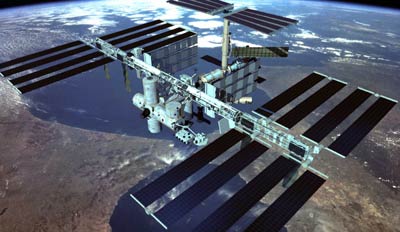NASA, export control, and collaboration: a bit of clarificationby Christopher M. Stone
|
| NASA is still collaborating with other nations. They are not being “insular.” |
This is a misinformed statement. Space export control wasn’t reformed per se, as the law only gave the President authority again to move items from United States Munitions List (USML) to the Commerce Control List (CCL) following a review of Category XV, and a few other reports Congress requires before items are moved to the dual use list. Reform is still a work in progress. Many people, myself included, have been involved in this process for several years now and understand that this effort is far from over. As Bigelow Aerospace’s Mike Gold recently stated at a COMSTAC meeting, “What we got with the legislative victory was not reform itself, but the opportunity for reform.”
Reduced collaboration in space?
The editorial stated: “The outcome is likely to be reduced collaboration, an increase in preventable mistakes and accidents, increased duplication of research, and a slower global rate of advancement. If ever there was a time for NASA and its legislative controllers to admit they can’t go it alone now would be that time.”
This also is an inaccurate statement. Collaboration will continue: among NASA, universities, and other nations. Each agency, including NASA, has disclosure officers, and with export control violations at the two NASA centers under investigation, it’s only prudent for them to check their documents, particularly to enable Congress to have faith in the system again. I also don’t buy the “NASA can’t go it alone” statement. There are many other science and engineering databases that have shared info agreements with NASA and I would bet there are ways to get copies of reports from NASA at other places. To say that scientific collaboration isn’t happening shows a lack of understanding of the strategic picture of space science, education, and operations at the national level. NASA isn’t the only federal entity that collaborates in space science and engineering. China and other nations are the focus areas of concern.
The real issue
“NASA’s leadership position in world space endeavors has already been under attack in recent years due to its floundering strategic plan, lack of human spaceflight capability, shrinking budget, and string of mission cancellations,” the editorial continues. “While other space agencies are becoming more collaborative to deal with economic constraints, NASA is becoming only more insular. Between sequestration, a steady tattoo of ’regular’ budget cuts, and nationalistic witch hunts, it is hard to see how the US space agency can hold onto the mantle of pioneering space exploration’s future for very much longer.”
This statement is only partially true. The real problem she should be writing about is in this phrase, “Floundering strategic plan, lack of human spaceflight capability, shrinking budget and mission cancellations.” That is worth being upset over and concerned. The rest of the paragraph has nothing really to do with the space export control and espionage issues. Other space agencies becoming more collaborative? Most space agencies of any merit have always been engaged in various conferences and other groups that are working implementation plans for Global Space Exploration Strategy, among other things. Most space agencies have to collaborate to get their spacecraft in space as they don’t have the budget or the desire to build their own infrastructure and vehicles to launch with. Some are more service providers than operations and exploration agencies.
| Sequestration has more of an impact on NASA than whether or not it is engaging with China in the near term. |
NASA, moreover, is still collaborating with other nations. They are not being “insular.” ISS is still in operation and in orbit, its partner nations are still sending people to JSC for training, science is still ongoing in orbit, and probes are still making their way to the planets and beyond. Thus, to say that NASA is becoming insular is completely false. They have issues with security with China, but as my recent article here noted, creates concerns that are worth discussing at a strategic level before just opening up the cooperative flood gates given China’s record of strategic deception and espionage of space technologies (see “US cooperation with China in space: Some thoughts to consider for space advocates and policy makers”, The Space Review, February 25, 2013). To say that the public has lost access to NASA is simply not accurate.
Sequestration has more of an impact on NASA than whether or not it is engaging with China in the near term. The Department of Defense and State Department are engaging the Chinese in various ways regardless of NASA’s legal restrictions. I would hope that members of the space profession would take a more researched look into things before saying things that are inaccurate and inflame the situation.
